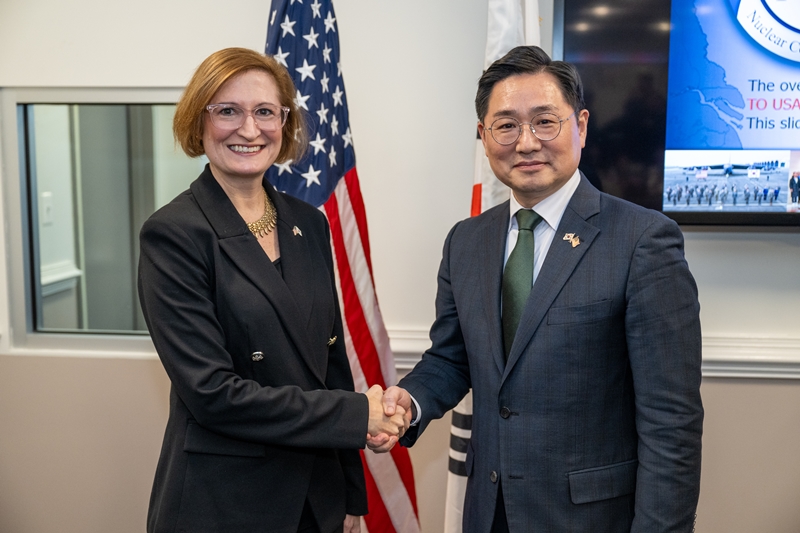
Cho Chang-rae, deputy minister for national defense policy (right), and Cara Abercrombie, acting U.S. deputy under secretary of defense for policy on Jan. 10 take a photo after jointly chairing the fourth Nuclear Consultative Group meeting in Washington. (Ministry of National Defense)
By Koh Hyunjeong
Ahead of the inauguration of the second Trump administration, the government and the U.S. have reaffirmed that their Nuclear Consultative Group (NCG) will remain the foundation for extended deterrence against North Korea.
In Washington, the fourth NCG meeting was jointly chaired by Cho Chang-rae, deputy minister for national defense policy, and Cara Abercrombie, acting U.S. deputy under secretary of defense for policy.
In a joint statement released after the talks, both sides “noted the continuously strengthened extended deterrence cooperation between the United States and the ROK (Republic of Korea) through the ongoing work of existing consultation bodies, including the NCG, the Extended Deterrence Strategy and Consultation Group, and the Security Consultative Meeting.”
The term “extended deterrence” refers to the integration of U.S. nuclear weaponry and Korea’s cutting-edge conventional forces.
The U.S. side reaffirmed that any nuclear attack by North Korea would be met with “a swift, overwhelming, and decisive response,” adding that “any nuclear attack by the DPRK (Democratic People’s Republic of Korea) against the United States or its allies is unacceptable and will result in the end of that regime.”
Officially launched in 2023 through the Washington Declaration after a bilateral summit, the NCG is a bilateral consultative body through which Seoul can comment on Washington’s nuclear operations to strengthen their extended deterrence against Pyeongyang’s nuclear threat.
hjkoh@korea.kr























